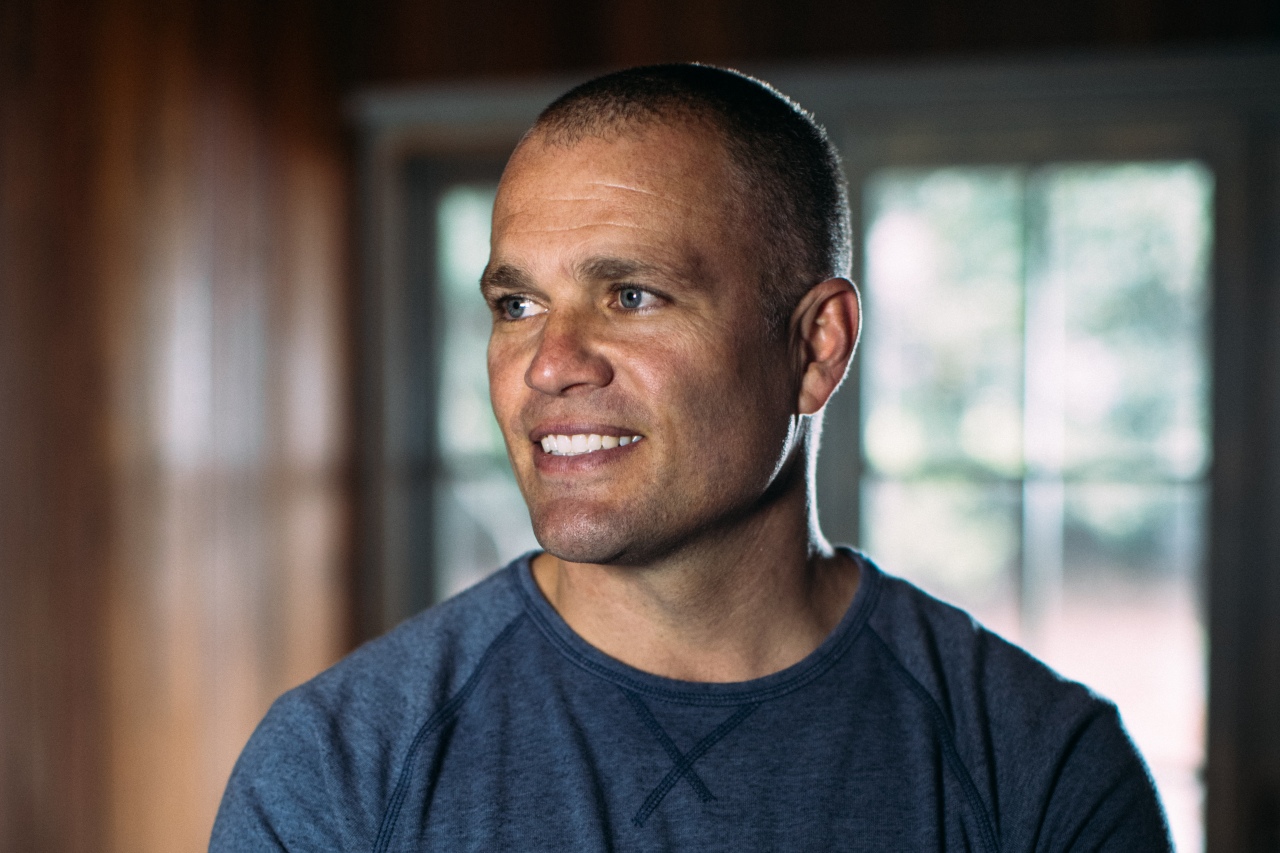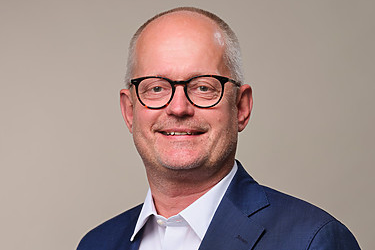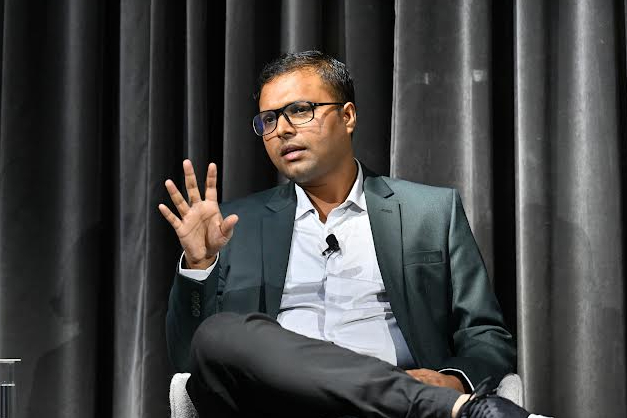
James Bartle – Founder and CEO of Outland Denim
Our recent interaction with James Bartle, Founder and CEO of Outland Denim, he shares insights about Outland’s sustainable denim manufacturing, traceable supply chain, and future plans of the company.Outland Denim, a sustainably minded and socially conscious denim brand
2021-12-22 12:33:56 – AustraliaOutland Denim is an Australian-based environmentally and socially conscious denim company that was founded by James Bartle with the goal of providing stable employment and economic opportunity to women who might otherwise be vulnerable to human trafficking.
The company’s business model centers on four key pillars: training, living wages, opportunity, and education. Today, they accept employees from varying backgrounds of vulnerability and social injustice to elevate people out of poverty via opportunity, skill acquisition, decent wages, and education.
Our recent interaction with James Bartle, Founder and CEO of Outland Denim, he shares insights about Outland’s sustainable denim manufacturing, traceable supply chain, and future plans of the company.
YnFx: How Outland Denim is innovating the traditional denim manufacturing process to reduce the environmental impact?
Bartle: While Outland was founded to create solutions for social change, it wasn't long before we realized the huge negative environmental impact of denim manufacturing, with denim being one of the dirtiest garments to produce. We see social and environmental sustainability as two sides of the same coin, so we use a multifaceted approach to mitigate ecological harm. Firstly through designing further circularity in prioritizing natural fibers, or where natural is not possible, prioritizing performance so that our customers can enjoy their Outlands for as long as possible. Secondly, through the selection of raw materials and suppliers. We primarily use organic cotton, in some designs recycled cotton, as well as zero harmful chemicals.
We also exclusively partner with suppliers who share in our social and environmental values and have their own environmental initiatives. Finally, through the establishment of our own wash facility, using state of the art technology we can replace the need for traditional techniques and finish our denims with significantly less water, energy, and chemicals. This year we also conducted our first emissions audit to gain an understanding of the full carbon impact of our business, from the farm to the factory to our logistics and the homes of our customers, to set us on a path to a Carbon Positive future.
YnFx: What are the sustainable raw materials that you use in manufacturing denim?
Bartle: Our primary raw material is organic cotton, which is used in all Outland garments. We selected organic cotton for a number of reasons. Firstly, it is farmed with zero use of agrochemicals which are known to reduce soil quality, contribute to water pollution, and severely affect the health of farmers. Organic farming also helps to reduce environmental impacts and enhance social responsibility while potentially saving water and helping to meet select UN Sustainable Development Goals. Textile Exchange links the growth of organic cotton to Poverty Reduction (SDG #1), as farmers can earn more and spend less on inputs; Zero Hunger (SDG #2), as organic cotton is usually grown alongside food crops; Good Health & Wellbeing (SDG #3), as cotton farmers and their families are not exposed to harmful chemicals; as well as SDG #6: Clean Water and Sanitation, as it does not cause contamination to local water sources. Organic soils are also shown to sequester more carbon than conventionally farmed soils.
Each Outland garment is also made with zero harmful chemicals and all vegan materials including a jacron paper patch for our denim items. In selecting our raw materials we also recognize that sustainability is far from black and white, and so it's about balance and finding the most sustainable option available today while investing in even better solutions for tomorrow.
Just one example is stretch denim. Elastane, being a type of plastic, affects the circularity of the garment and when laundered will release tiny microplastics into waterways. Currently, the alternatives are very early in development, and because of this, those new fabrics with natural stretch elements have their own downfalls, such as being difficult to control in production (i.e. handling the fabric and washing/finishing the fabric), and don’t perform as well as elastane over time, which means you would need to replace your denim more often, ultimately making them less "sustainable". There's no perfect answer, apart from the certainty that progress is needed. The balance we strike is to produce a small selection of styles with virgin elastane, while also introducing options that do not contain elastane, and investing into continuing to trial alternative options.
YnFx: What are the various sustainable finishing techniques that Outland Denim has adopted?
Bartle: We are really proud of our stand-alone wash house and the technology we have available here. It allows us further control of our environmental footprint during the manufacturing stages, while also providing further career opportunities. This technology includes:
Ozone: Ozone, the greenest oxidizing agent available, replaces traditional techniques of using harsh chemicals and bleaching agents to age jeans. Ozone washing significantly reduces the amount of water, energy, and chemical usage in this wash process while still producing the same authentic effect.
Laser: Removing the need for water-intensive washing and heavy chemical use makes laser production the most environmentally friendly washing process available to the garment industry today.
E-Flow: E-flow is the industry-leading technology for chemical transfer to garments. Converting atmospheric air into nanobubbles, coated with just the right amount of water and chemical to create a ‘nanobubble skin’ homogeneously transferring both water and chemical onto the garment. This unique combination of digital programming and innovative science releases just the right amount of input needed at each phase of the wash to produce numerous, high-level finishing effects.
YnFx: What are the various measures taken by the company to ensure full supply chain traceability?
Bartle: This year we celebrated a huge breakthrough in our traceability journey, marking 100% traceability of our organic cotton denim.
Our supply chain tiers are assessed based on Traceability Scoring criteria. We require each supplier, in each tier of the supply chain, to meet or exceed a minimum of 75% of the criteria to be considered 'traceable'. To meet this criterion, we ask suppliers to provide: a raw material breakdown; country of origin or raw materials; business name and location; externally assessed social standard or certification; and externally assessed environmental standard or certification. Further to this, we exclusively work with suppliers who share in our social and environmental standards. We work with suppliers that meet a minimum score of 80% when assessed against our Sustainability and Ethics Criteria, which includes:
- Agreeance and adherence to our Supplier Code of Conduct
- Name and address of supplier-provided and publicly available
- Evidence of employee wages to ensure legal requirements are met at minimum
- Adheres to a recognized Manufacturing/Restricted Substance List
- Provides raw material/ingredients list
- visited by Outland Denim personnel
- Has provided audit results to Outland Denim or has been assessed by an internationally recognized external certification body
YnFx: What are the future plans of the company?
Bartle: Currently we are focusing a lot of our attention on tackling textile waste. It's estimated that 8,000,000 tonnes of textiles are sent to landfills each year in Australia alone. Slowing our consumption may help, but we fear it won't be a fast enough solution. This is why we are investing heavily into research and development of waste and circularity technology, working to remove textiles from landfills and revolutionize the way we dispose of clothing. Not just for the use of us as a brand, but for the use of the whole fashion industry.
Our team has proven, in a lab, that we can take the textile waste and eradicate it. This year we took the next step in taking this technology and testing in a commercial pilot stage. We are in the very early stages of this journey, but the potential is extremely exciting.
Market Intelligence
Ask for free sample Report

experience
Customer Base
dedicated team
Countries Served Worldwide






